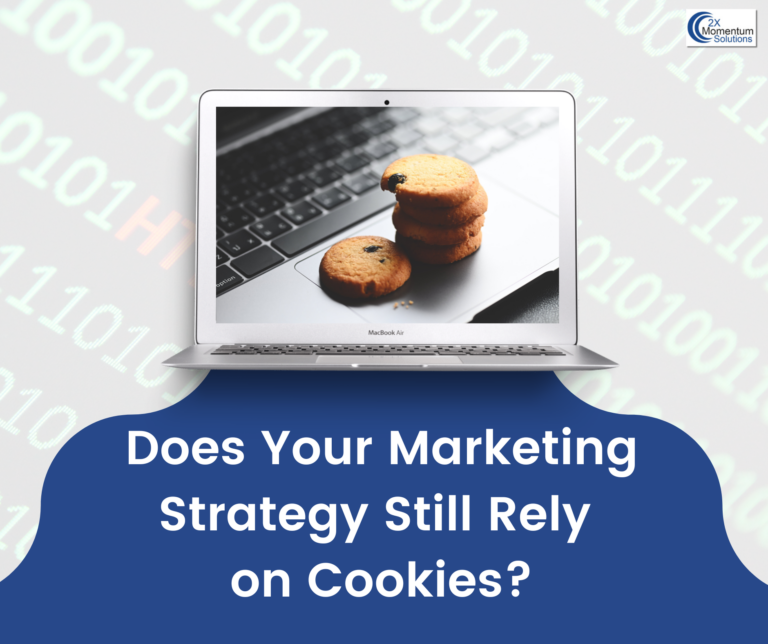If cookies are essential to your marketing strategy, it’s time to prepare for some changes!
Increasing concern surrounding data privacy has been moving the digital marketing industry closer to a cookie-free future. Shifting to a customer-centric approach can set you up for success in the future, regardless of how things evolve.
Before diving into this shift, let’s make sure we’re clear on what cookies are, how cookie use has changed, and what the future may hold for cookies.

What Are Cookies?
A cookie is a small text file stored on your computer after you visit a website.
Cookies were first used to help websites keep track of what someone had added to their shopping cart. Their use then expanded to user authentications, browser history, and tracking across different websites.
The two main types of cookies are first-party and third-party. First-party cookies help maintain a user’s settings on a website, and they’re not affected by the upcoming changes. Third-party cookies track users across domains and use that information for retargeting and other personalized ads. Third-party cookies are the focus of the changes we’ll be talking about.
How Has Cookie Use Changed?
Data privacy has become a hot global issue—socially, legally, and politically. Regulations are trending in the direction of more transparency and privacy for individuals.
In light of this, some major web browsers like Safari and Firefox have blocked the use of third-party cookies by default. Google had previously announced a plan to phase out third-party cookies from Chrome, but they recently announced that cookies will stay, with users having the option to opt out.
Even though Google has changed its plans, it won’t be business as usual for marketers. With the increasing demand for privacy, many users may use an alternate browser or simply opt out of cookies on Chrome. Also, data privacy regulations may continue to tighten.
What’s Next for Cookies?
Google, Facebook, and other tech giants are working on developing an alternative to third-party cookies. One method in the works is federated learning, which may allow marketers to learn from the data of given groups without impacting individual privacy.
It’s yet to be seen whether they will find an adequate replacement for third-party cookies. What we do know is that it’s wise to start adjusting your marketing strategy now so that you’re ready for a cookie-free world.
How Should Your Marketing Strategy Change?
By making your digital marketing strategy more customer-centric right now, you can set yourself up for success—no matter what the future holds for cookies.
This means, first, a focus on patterns over individuals. Put your effort toward developing and optimizing your customer journey map instead of tracking each individual customer. This allows you to give your customers the right content at the right time without needing their personal data. For example, if you learn through a focus group that your customer tends to watch YouTube reviews before purchasing hiking gear, your strategy might include getting more people to review your company’s hiking gear and placing ads near relevant videos on YouTube.
You can also get to know your customers better by giving people an incentive to provide more information about themselves. If you sell snack food and offer custom sample boxes based on people’s dietary preferences, they’re more likely to volunteer that information! You can use data gathered from a large representative sample to help improve your overall strategy and offerings.
Get Started Today
When you truly get to know your customer and your customer journey, your business will be on the path to success—regardless of what happens with third-party cookies. Whether or not we see a viable cookie alternative soon, you’ll be prepared!
If you’d like help adjusting your digital marketing strategy for a cookie-free future, 2XM is here. Contact us for a FREE 60 minute consultation today.
